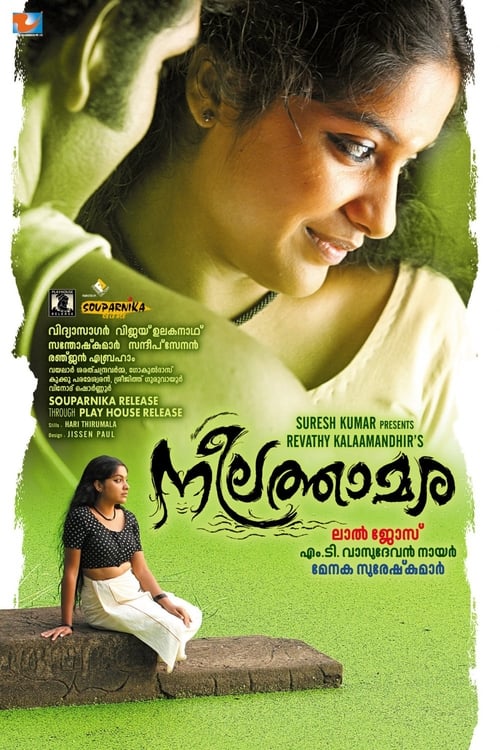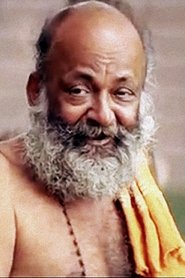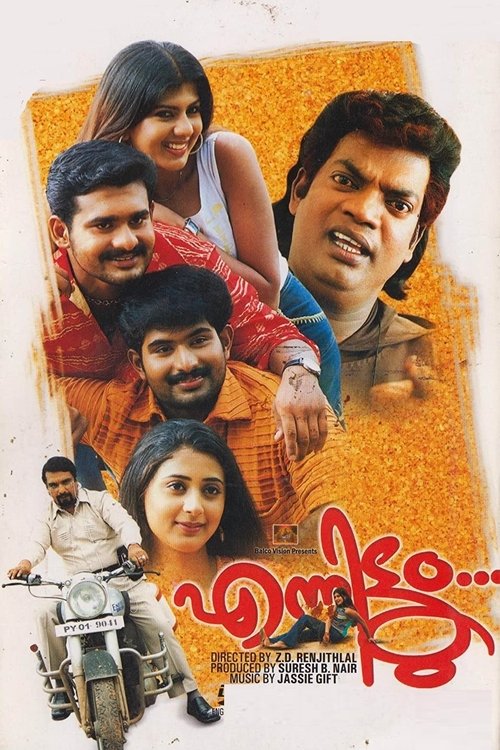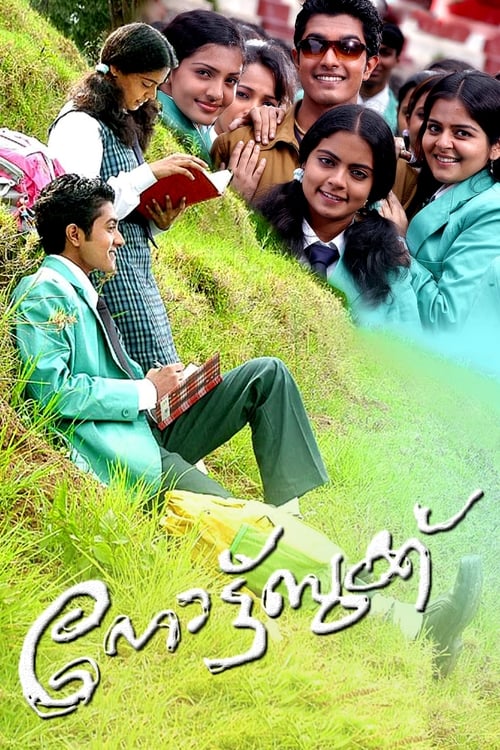
Ask Your Own Question
What is the plot?
What is the ending?
In the ending of "Neelathamara," the story culminates in a poignant and emotional resolution. The protagonist, Kunjimalu, faces the harsh realities of her choices and the societal constraints surrounding her. The film concludes with a sense of loss and unfulfilled dreams, as Kunjimalu's love for the man she cannot be with leads to a heartbreaking separation.
As the narrative unfolds in the final scenes, we find Kunjimalu, portrayed with deep emotional complexity, grappling with her feelings for the man she loves, who is not able to be with her due to societal pressures and familial expectations. The atmosphere is heavy with tension as she stands at a crossroads, torn between her desires and the reality of her situation.
In a pivotal scene, Kunjimalu is seen at the riverbank, a place that has been a symbol of her dreams and aspirations throughout the film. The water flows gently, mirroring her turbulent emotions. She reflects on her past, the moments of joy and sorrow, and the love that has blossomed yet remains unfulfilled. The cinematography captures her solitude, with the lush greenery surrounding her contrasting with her inner turmoil.
As the narrative progresses, we witness the arrival of her love interest, who is burdened by the weight of his own responsibilities. Their interaction is fraught with unspoken words and lingering glances, encapsulating the depth of their connection. However, the reality of their circumstances looms large, and they both understand that their paths are diverging. The emotional intensity of this scene is palpable, as they share a final moment of intimacy, knowing it is likely their last.
In the subsequent scenes, Kunjimalu returns home, where the atmosphere is starkly different. The warmth of her family contrasts with the coldness of her heart as she grapples with her decision. Her mother, oblivious to the turmoil within her daughter, continues to push for a traditional life, emphasizing the importance of societal norms and expectations. Kunjimalu's internal conflict is evident as she struggles to reconcile her love with her family's wishes.
The film reaches its climax when Kunjimalu makes a choice that reflects her growth and understanding of her own desires. She decides to prioritize her family's expectations over her personal happiness, a decision that weighs heavily on her. The emotional weight of this moment is captured through close-up shots of her face, revealing the tears that threaten to spill as she accepts her fate.
In the final scenes, we see Kunjimalu walking away from the river, a symbol of her lost dreams. The camera lingers on her figure, highlighting her isolation and the sacrifices she has made. The film closes with a sense of melancholy, as the audience is left to ponder the implications of her choices and the societal constraints that shaped her destiny.
The fates of the main characters are intertwined with Kunjimalu's journey. Her love interest, who remains unnamed, is left to navigate his own path, burdened by the choices he has made. Kunjimalu's family continues to uphold their traditions, unaware of the emotional turmoil their daughter has endured. The ending serves as a poignant reminder of the sacrifices made in the name of love and duty, leaving a lasting impact on the audience as they reflect on the complexities of human relationships and societal expectations.
Is there a post-credit scene?
The movie "Neelathamara," produced in 2009, does not have a post-credit scene. The film concludes its narrative without any additional scenes after the credits roll. The story wraps up with the emotional arcs of the characters being resolved, particularly focusing on the themes of love, sacrifice, and the societal constraints faced by the protagonists. The ending leaves a lasting impression, emphasizing the bittersweet nature of their experiences rather than introducing any further plot developments.
What is the significance of the character Kunjumon in Neelathamara?
Kunjumon is a pivotal character in 'Neelathamara,' representing the youthful spirit and the complexities of love. His infatuation with the beautiful and strong-willed girl, played by the lead actress, drives much of the emotional tension in the film. Kunjumon's character is marked by his innocence and determination, as he navigates the challenges posed by societal expectations and familial pressures.
How does the relationship between Kunjumon and the female lead evolve throughout the film?
The relationship between Kunjumon and the female lead is central to the narrative of 'Neelathamara.' Initially, Kunjumon is captivated by her beauty and charm, leading to a blossoming romance filled with youthful passion. However, as the story progresses, their relationship is tested by external factors, including family obligations and societal norms, which create emotional turmoil for both characters. Their love story is marked by moments of joy, longing, and heartache, reflecting the complexities of young love.
What role does the setting play in the development of the story in Neelathamara?
The setting of 'Neelathamara' is crucial to the film's narrative, as it is set in a picturesque village that embodies the cultural and social dynamics of Kerala. The lush landscapes and traditional architecture serve as a backdrop for the characters' interactions and emotional journeys. The village life, with its festivals and communal gatherings, enhances the romantic and dramatic elements of the story, making the setting almost a character in its own right.
What are the key conflicts faced by Kunjumon in the film?
Kunjumon faces several key conflicts throughout 'Neelathamara.' Primarily, he grapples with the societal expectations placed upon him, particularly regarding his family's wishes and the traditional norms of love and marriage. Additionally, he experiences internal conflict as he struggles to balance his feelings for the female lead with the pressures of his environment. These conflicts drive the narrative forward and highlight Kunjumon's growth as he seeks to assert his own desires against the backdrop of familial and societal obligations.
How does the character of the female lead challenge traditional gender roles in Neelathamara?
The female lead in 'Neelathamara' is portrayed as a strong and independent character who challenges traditional gender roles. She is not merely a passive love interest; instead, she exhibits agency and determination in her choices. Her character often defies societal expectations, showcasing resilience and a desire for autonomy. This portrayal adds depth to her relationship with Kunjumon, as she navigates her own aspirations while dealing with the constraints imposed by her family and society.
Is this family friendly?
"Neelathamara," produced in 2009, is a romantic drama that explores themes of love, sacrifice, and societal expectations. While the film is primarily a love story, there are several elements that may be considered objectionable or upsetting for children or sensitive viewers.
-
Emotional Turmoil: The film delves into complex emotional states, including heartbreak and longing, which may be intense for younger audiences to process.
-
Societal Pressures: The characters face significant societal and familial pressures regarding love and marriage, which can lead to distressing situations.
-
Conflict and Tension: There are scenes that depict conflict between characters, including misunderstandings and confrontations that may be unsettling.
-
Themes of Sacrifice: The narrative includes themes of personal sacrifice for the sake of love, which can evoke feelings of sadness or melancholy.
-
Cultural Context: Some cultural practices and expectations portrayed in the film may be difficult for younger viewers to understand or relate to, potentially leading to confusion or discomfort.
Overall, while "Neelathamara" is a poignant exploration of love, its emotional depth and the challenges faced by the characters may not be suitable for all children or sensitive viewers.





























